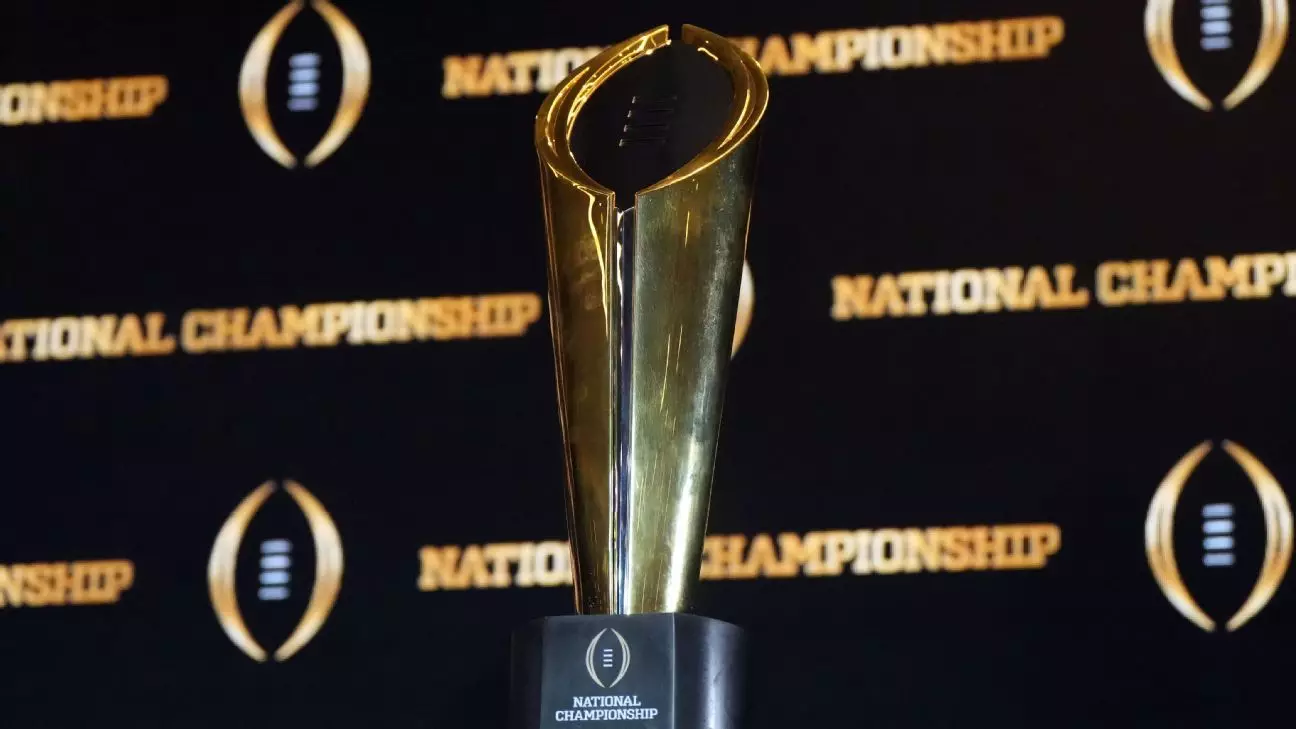The College Football Playoff (CFP) system is integral to American collegiate sports, but the complexities surrounding the scheduling of bowl games highlight the myriad challenges associated with maintaining fairness while ensuring logistical integrity. Recently, SEC Commissioner Greg Sankey’s request to alter the dates and times of key bowl games has sparked discussions about the balance between competitive advantage and operational feasibility. While Sankey’s appeal aimed to address perceived inequities faced by participating teams, especially Notre Dame, the CFP’s refusal to change game schedules underscores the intricate nature of such decisions and the multitude of factors that stakeholders must consider.
The essence of the scheduling dilemma lies in several intertwining competitive interests. After a significant victory against Georgia in the Allstate Sugar Bowl, Notre Dame prepared for a tough matchup against Penn State in the Capital One Orange Bowl. However, the quick turnaround from one high-stakes game to another raised legitimate concerns. Sankey emphasized that this scheduling crunch could unfairly disadvantage Notre Dame, which faced a mere week between games, while Penn State benefited from a longer recovery period after their New Year’s Eve victory against Boise State.
Despite these competitive concerns, the response from the CFP was pointed. Executive Director Rich Clark reiterated that such timeframe flexibility could not be accommodated without considerable disruption. He cited logistical complexities that included not just team preparation but also fan arrangements, stadium availability, and the commitments of all parties involved. This decision reflects an attempt to maintain consistency and predictability in an environment that is already rife with uncertainties.
Adding another layer to this already complicated situation was the tragic incident that delayed the Allstate Sugar Bowl, resulting in 15 lives lost and numerous injuries. This horrific event understandably shifted focus towards player and spectator safety, prompting adjustments in the scheduling of various bowl games. Sankey noted that the request to flip the games was born out of an “incredible horrible tragedy” that upended traditional timelines. However, the implications of logistical adjustments to the remainder of the football season must also be carefully weighed.
In reconsidering the timing of these events, one must recognize the human element involved. The emotional toll on teams, particularly Notre Dame, is significant in the aftermath of a community tragedy. The psychological impact on the athletes, many of whom are young adults amid high-pressure scenarios, could arguably be as impactful as the physical demands of the sport.
Amidst this intricate landscape, the various perspectives of stakeholders are crucial. Sankey’s comments on “The Paul Finebaum Show” signal a broader desire for collaboration and communication between conferences and the CFP. Yet, the uncertainty in receiving clear responses regarding scheduling changes illustrates the often-compartmentalized nature of collegiate athletics. While concerns regarding competitive equity are valid, Clark’s insistence on maintaining pre-established plans speaks to the reality that altering games can have serious implications beyond just the teams involved.
For fans and communities, the scheduled events aren’t merely games; they’re ceremonies that require substantial investment in terms of planning, travel, and resources. The engagements tied to these games—and the disruptions that schedule changes could provoke—would ripple through local economies and fan experiences alike.
Ultimately, the situation illustrates the necessity for adaptability in sports. As Sankey remarked, the ability to adjust plans in response to unforeseen circumstances is essential. While the CFP has upheld the original scheduling, this decision does serve as a reminder of the importance of careful planning in future seasons. Moving forward, it may be beneficial for governing bodies to develop contingency protocols that specifically consider unexpected disruptions, be it safety concerns or other crises.
In summation, the recent scheduling controversy resulting from rapidly evolving circumstances highlights both the value and the difficulty of maintaining fairness within the collegiate football landscape. As the season progresses, understanding and addressing the implications of scheduling decisions will be vital for all stakeholders involved.


Leave a Reply